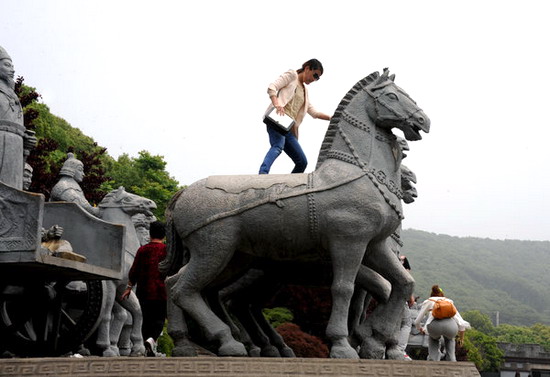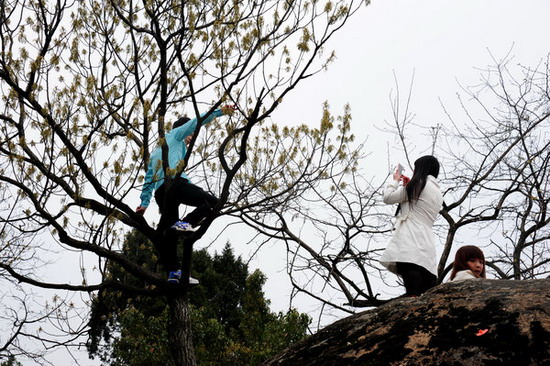
18 Apr, 2015
China to blacklist badly-behaved tourists
Beijing (Xinhua) 2015-04-11 – China is starting to blacklist poorly-behaved tourists as it seeks to rescue the image of its citizens as holidaymakers.
According to a regulation by the China National Tourism Administration (NTA) that entered effect this week, tourists will be blacklisted for offences including acting antisocially on public transport, damaging private or public property, disrespecting local customs, sabotaging historical exhibits or engaging in gambling or pornographic activities.
Records will be kept in a two-tired system: provincial-level tourism authorities are responsible for cases under their jurisdiction while the NTA will be in charge of a nationwide register.People will be blacklisted for two years after they offend, according to the regulation
The NTA said tourism authorities will inform blacklisted tourists and “propose correction measures in order to mitigate the negative impact”.
It also said that tourism authorities reserve the right to report such violations to public security, customs and transport authorities as well as the central bank’s individual credit department.
The regulation comes amid growing concern about the ill manners of Chinese tourists both at home and abroad.
In 2013, a Chinese tourist wrote his name on a relief carving in Luxor, Egypt. In December, a Chinese passenger threw a cup of hot instant noodles at a flight attendant on an international flight. Chinese tourists have been fined or jailed for carrying prohibited items or purchasing wild animal products.
Zhang Hui, who works for a multinational company in Shanghai, said misbehavior by Chinese tourists had blunted her desire to travel.
“I never make trips during public holidays because I can imagine the chaos, the garbage …, the commotion in places that should be peaceful, and disturbances caused on trains or flights,” Zhang said.
“However, I’m not sure whether this new measure will work, just like no-smoking signs in public areas. And I’m still not clear how the behavior of Chinese tourists will be supervised worldwide.”
 A tourist climbs on a statue in Wuxi, Jiangsu province, on May 10, 2013. |
Zhang Lingyun, deputy dean of the tourism college at Beijing Union University, has kept a close watch on the issue since the flight from Bangkok had to turn back. He said he can understand the motivation behind the new measure, but still doubts if it will be effective.
“It will be very difficult to operate. Take obtaining evidence, for example. Behavior that breaches the law won’t be too difficult to define, but cases that involve morals will be,” Zhang said.
“Some forms of misbehavior listed in the new measure are already banned under other laws. For example, historical relics are protected by the Cultural Relics Protection Law.
“I think we don’t need another measure in this area. Cases involving morals can only be resolved through education and with proper guidance.
“Personal records should be dealt with carefully without violating personal privacy.”




Liked this article? Share it!